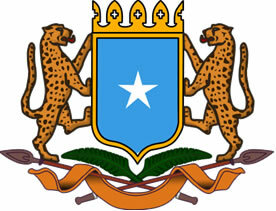Somalia is located in the easternmost portion of the African continent, known as the “Horn of Africa”. Its territory, bordered by the Indian Ocean, is limited to the west by Ethiopia, to the northwest by Djibouti and to the south by Kenya.
Somali territory was dominated by several nations. Portuguese, English, French and Italians controlled some cities in the country, which gained independence on July 1, 1960. Since then, Somalia has been ruled by dictators and rebel groups. This situation sparked, in 1990, a civil war between rival clans fighting for dominance of national power. At the beginning of the 21st century, Islamic militias established bases in the country, including al-Qaeda (terrorist organization led by Osama bin Laden).

civil war in somalia
With a mostly Islamic population, the country applies severe penalties to inhabitants who do not follow the laws of the Koran: a sexual intercourse before marriage is punishable by stoning the "offenders", and the woman's father is also murdered; homosexuals and people who carry out thefts are executed in public squares.
According to World Bank data, half of Somalia's population lives below the poverty line (on less than $1.25 a day). The infant mortality rate is one of the highest in the world: 106 deaths per thousand live births. Illiteracy and malnutrition afflict many Somalis.
The national economy is poorly industrialized as a result of the civil war. Agriculture is the main economic activity, accounting for 40% of the Gross Domestic Product (GDP) and 65% of exports. Somalia has the largest camel herd in the world, an activity carried out by nomadic herders.

Coat of arms
Somali Data:
Territorial extension: 637,657 km².
Location: Africa.
Capital: Mogadishu.
Climate: Arid tropical.
Government: Transitional government formed in 2004.
Administrative division: 18 regions.
Language: Arabic and Somali (official), English, Italian.
Religions: Islam 98.5%, others 1.5%.
Population: 9,133,124 inhabitants (Men: 4,529,130; Women: 4,603,994).
Composition: Somalis 98.3%, Arabs 1.2%, Bantu 0.4%, others 0.1%.
Demographic density: 14.3 inhab/km².
Average annual population growth rate: 2.3%.
Population residing in urban areas: 36.97%.
Population residing in rural areas: 63.03%.
Life expectancy at birth: 47.5 years.
Infant mortality rate: 107 deaths per thousand live births.
Households with access to drinking water: 29%.
Households with access to a health network: 23%.
Currency: Somali Shilling.
Gross Domestic Product (GDP): 5.5 billion dollars.
GDP per capita: $291.
External relations: World Bank, IMF, UN, AU.
By Wagner de Cerqueira and Francisco
Graduated in Geography
Brazil School Team
countries - geography - Brazil School
